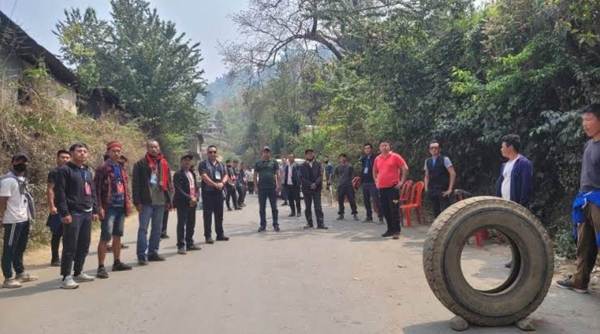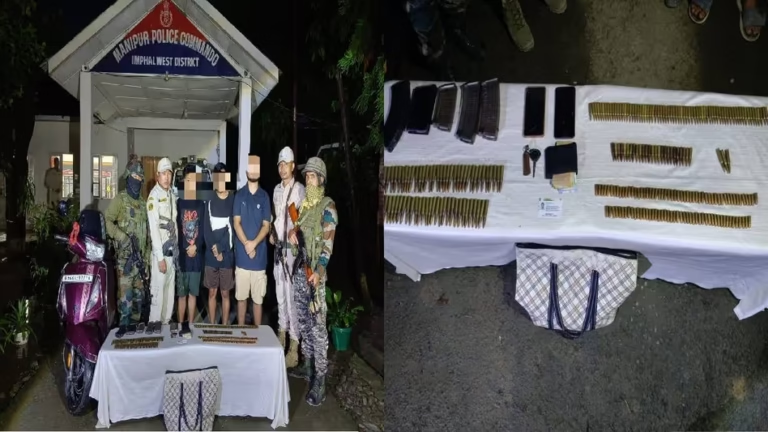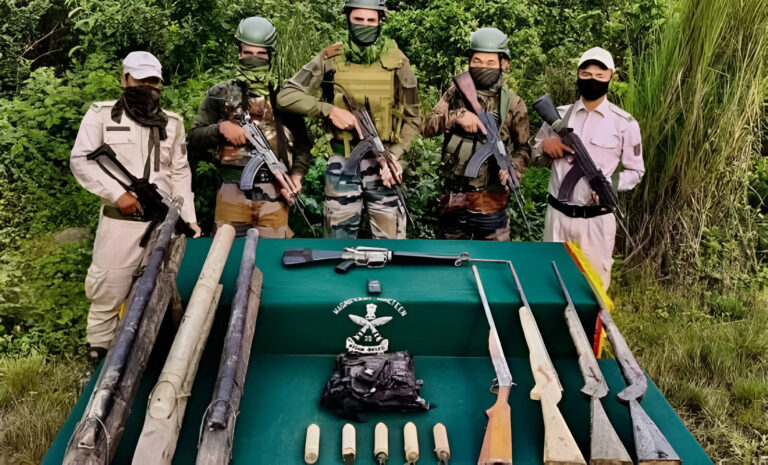Indefinite Bandh by Naga Groups Disrupts Traffic on Manipur–Nagaland Border
Short summary
An indefinite bandh called by the Zeliangrong Youth Organization Nagaland (ZYON) and the Zeliangrong Students’ Union (ZSUN) has halted vehicle movement across parts of the Manipur–Nagaland border since 18–19 August 2025, particularly affecting National Highway 129A and interstate commercial routes. The shutdown — enforced from Peren district in Nagaland — was launched to press for justice in the Pimla rape and murder case, and left hundreds of truckers and passengers stranded while essential services were reportedly exempted. Manipur authorities responded by routing some supplies via NH-37 with security escorts and increasing checkpoints to maintain law and order.
The scene on the road — what happened and where
Picture this: a convoy of night buses and goods-laden trucks, engines idling, drivers pacing, people stepping out for a stretch that turns into waiting. That’s what dozens — possibly hundreds — of motorists faced when a bandh enforced by Zeliangrong student and youth bodies came into effect around Peren district, along the Manipur–Nagaland border, on 18–19 August 2025. Traffic on NH-129A and connecting interstate routes came to a standstill, and many heading to Imphal or onward found themselves stranded at the border. The organizers say this is an act of protest demanding swift and strict action in the Pimla rape and murder case — a case that has inflamed local sentiment and pushed community organizations to action.
So why does a local shutdown matter beyond the patience of stranded drivers? Because highways in the northeast are lifelines. When they close, the pulse of commerce — food, medicine, fuel — gets choked, and towns far from the blockade begin to feel the squeeze within hours.
Who are ZYON and ZSUN — a quick explainer
Before we go deeper, let’s get some context on the groups calling the bandh. The Zeliangrong is an ethno-cultural umbrella for several Naga tribes (Zeme, Liangmai, Rongmei — sometimes Inpui historically), spread across parts of Nagaland, Manipur and Assam. Bodies such as the Zeliangrong Youth Organization Nagaland (ZYON) and the Zeliangrong Students’ Union (ZSUN) are influential local civil-society actors within that community — often mobilising for social, cultural and justice-related causes. In recent years they have also agitated against issues like alleged illegal taxation and what they see as administrative or law-and-order failures affecting Zeliangrong areas. Their decision to impose a bandh is rooted in community pressure and the belief that public protest can push authorities to act.
Think of these groups as local neighborhood councils — but with the power to shut down entire districts when grievances boil over.
The trigger: the Pimla case and community outrage
What lit the fuse this time? The bandh organisers say it’s the Pimla rape and murder case: a woman in her mid-30s was found dead near Pimla village (Chümoukedima district) earlier this year, and while several suspects were detained, the perceived pace and direction of justice has frustrated sections of the Zeliangrong community. Reports say the body was discovered on April 7, and while police arrested multiple suspects, community leaders have repeatedly demanded stronger action, clearer forensic transparency and accountability — especially after some suspects were reportedly granted bail at stages that activists call premature. The bandh is being used as leverage: public pressure to ensure the criminal-justice system answers community demands for what they call “speedy and fair justice.”
When grief turns into public anger, the impulse to make a visible stamp of dissent — like a shutdown — is often chosen because it interrupts the status quo and forces an administrative response.
Immediate human impact — stranded people, delayed goods
The human cost was immediate. Hundreds of truckers and passengers were reported stranded at Peren headquarters and nearby stretches, running low on essentials and anxious about security and timing. Organisers did announce exemptions for true emergencies — medical services, firefighting, paramilitary operations and urgent government work — but for ordinary commercial traffic, the halt meant lost time and ballooning expenses. In response, the Manipur administration tried to keep supplies flowing by diverting critical consignments via NH-37 (Imphal–Silchar road), and said that around 130 vehicles with essential supplies had been moved under armed escort on one of the days following the bandh. Simultaneously, Manipur police set up 113 checkpoints across districts to manage the law-and-order situation and secure vulnerable stretches.
Roads aren’t just asphalt — they’re the arteries of the local economy. When they clog, hospitals, shops and markets feel the pressure fast.
FAQs
Q1: Which organizations called the indefinite bandh at the Manipur–Nagaland border?
A1: The bandh was jointly enforced by the Zeliangrong Youth Organization Nagaland (ZYON) and the Zeliangrong Students’ Union (ZSUN), active bodies within the Zeliangrong community.
Q2: Why did the Zeliangrong groups impose the bandh?
A2: They demanded justice in the Pimla rape and murder case, citing concerns over the pace and transparency of the investigation and judicial process. Organisers say the bandh is a way to press authorities for swift action.
Q3: What has been the immediate effect on traffic and essential supplies?
A3: Vehicle movement on NH-129A and associated interstate routes was halted, leaving hundreds of truckers and passengers stranded. Manipur authorities said they facilitated movement of essential goods via NH-37 under security escorts, and set up 113 checkpoints to ensure law-and-order
Q4: Are essential services exempted from the bandh?
A4: Organisers stated that essential services such as medical care, firefighting, paramilitary duties and urgent government tasks were exempted; however, implementation at local checkpoints can vary, so stranded civilians sometimes report difficulties.
Q5: How can such protests be resolved without harming innocent people?
A5: De-escalation usually requires immediate humanitarian measures (hotlines, corridors), transparent forensic or judicial updates for the grievance in question, fast-track dialogues between community leaders and authorities, and third-party mediators to build trust — steps that address both the immediate harm and the root causes






